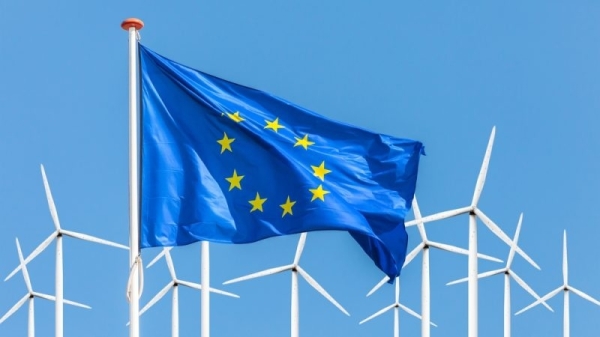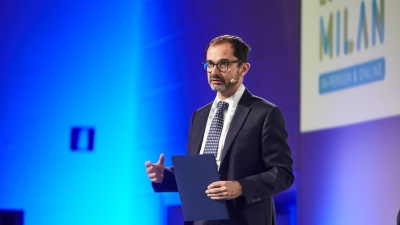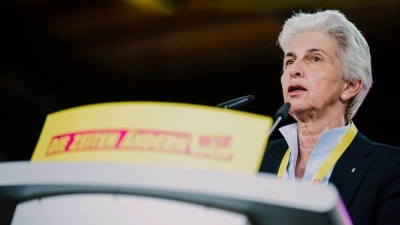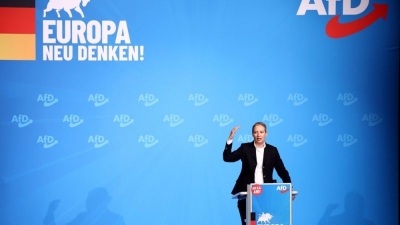EU agrees law to boost Green industry at home

The European Parliament and national governments have agreed to boost domestic production of green technologies, such as solar modules and wind turbines, expanding the list to include nuclear power but shying away from excluding Chinese manufacturers for most public subsidies.
The ‘Net-Zero Industry Act’ (NZIA) aims to boost domestic production of green technologies, in some of which – like solar modules – Europe has already lost its leadership to China, while in others – like wind turbines – it fears new competition, mainly from the Far East.
“The time is ripe for Europe to take back the lead on the global scene for clean technologies and to build a competitive, green, and job-creating industrial sector,” Flemish Economy Minister Jo Brouns, who led negotiations on behalf of the Belgian Council presidency, said in a statement.
The European Commission wanted to limit the law to eight key technologies, including renewables, energy storage, electric grids, and carbon capture and storage (CCS).
However, the European Parliament and Council wanted to see a broader set of technologies included and broadened the scope to include nuclear power.
It is a “mix of the two mandates [Council of the EU and Parliament]”, Christophe Grudler, french MEP and Renew shadow reporter, told Euractiv.
“There’s a reference to nuclear, but it’s up to the member states to decide to what extent this is part of the energy mix,” Christian Ehler (EPP), chief negotiator for the European Parliament, told journalists after the deal was struck.
Environmentalists, however, criticised the inclusion.
“Broadening the scope of the Net-Zero Industry Act, while public investments are limited, risks diverting taxpayers’ money to magical future techno-fixes and away from the available and proven key green technologies we need to achieve the EU’s 2030 climate targets,” Camille Maury, policy officer at WWF, said in a statement, about the inclusion of both nuclear power and CCS.
Permitting and Net-Zero Valleys
Ehler highlighted the new provision to fast-track permitting for production sites for clean technologies, which “are dramatically changing the nature of permitting in Europe”, with a final approach close to the one of the Council.
The time limit for issuing a construction or expansion permit for a project over 1 GW or not measurable in GW is 18 months. The maximum is 12 months for smaller projects.
To implement such big projects “the principle of the so-called net-zero valleys was validated even before the end of the trilogues”, a parliamentary source close to the trilogues told Euractiv.
Net-zero “acceleration” valleys, as the negotiators concluded, were introduced by EP. They are “specific areas to accelerate net-zero industrial activities in particular to accelerate the implementation of net-zero technology manufacturing projects, including net-zero strategic projects or clusters thereof and/or to test innovative net-zero technologies.” Net zero “acceleration” Valleys NZIA draft agreement’s part seen by Euractiv said.
“The objectives of the Valleys shall be to create clusters of net-zero industrial activity and further streamline.”
High ambition, implementation left to member states
The ‘indicative benchmark’, the non-binding target to produce 40% of clean technologies used in Europe by 2030 at home, was kept unchanged by negotiators.
Reaching the target will mostly be the job of member states, who have to change their national subsidy and public procurement programmes according to the new law.
While support for large renewable energy projects, such as wind or solar parks, is usually awarded in auctions where the lowest bidder wins the subsidy, every third of those auctions should, in the future, include criteria other than the price.
This makes a provision binding, which so far was optional, as the EU’s strict rules for national subsidies, known as “state aid”, already allowed for up to 30% of non-price criteria in renewable energy auctions.
Such criteria can be “environmental sustainability, contribution to innovation or integration of energy systems,” the Council announced. According to industry experts, They could be designed so that European manufacturers have an advantage over foreign ones.
To include criteria on “sustainability, in particular, appears to make sense for the promotion of domestic European production of energy transition technologies,” the German Energy Agency dena had recommended in a report on how to promote green industries, adding that “local manufacturers still have a head start over international competitors.”
New rules are also included for public procurement, such as solar panels built on top of school buildings and programmes to support households buying solar panels, batteries or heat pumps with state support.
Fundings
Regarding funding, the NZIA is not a text on financing capacities. Nevertheless, Parliament wanted bridges to be built.
Finally, it obtained a recital that raised the possibility of allocating ETS funds to projects facilitated without precisions concerning specific amounts or criteria to define amounts.
Another possibility examined was to use the STEP funds. “We want a direct link between the NZIA and the STEP,” said Ehler during the press conference.
As NZIA, it is, “We’re not quite in the same category, with the same ambitions as the American IRA plan”, Ehler recognised. “American budget incomparably higher than ours, but we’ve still defended the European market and the European idea well”, he concluded.
(Paul Messad and Jonathan Packoff | Euractiv.com)
Read more with Euractiv




